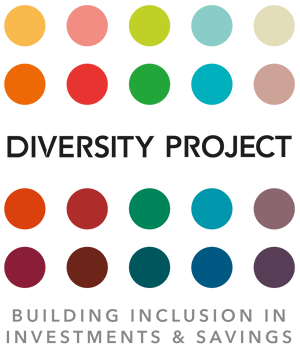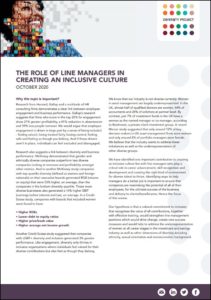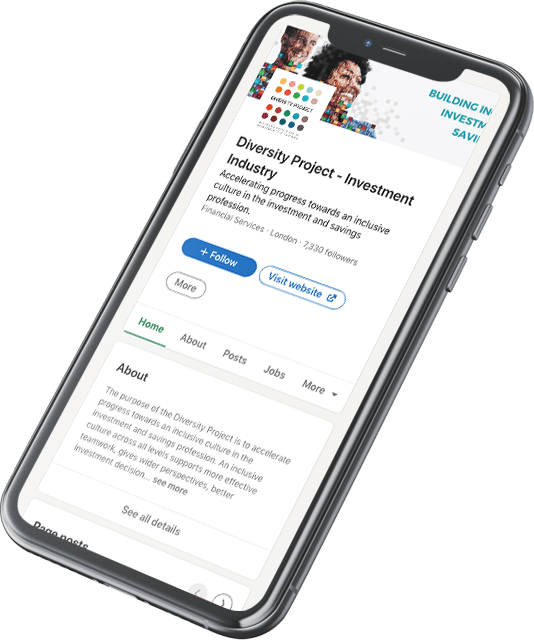Having effective line managers is key to ensuring that the working environment is inclusive. Covid 19 is putting even more emphasis on the need for line managers to support their teams who are working remotely, including around mental health.
Research by the Diversity Project in 2020 suggested that line management in our industry is not always a valued activity. Line managers are often appointed by default (being the head of a team or desk) or because the individuals see it as a stepping stone to a more senior position and not because of their aptitude as a people manager.
Line managers are rarely given training or objectives that set out what is expected of them. Their work as a line manager is rarely assessed or rewarded. This contrasts with the clarity of recognition and rewards for fund performance, for gaining new clients or for generating consulting fees.
If firms do not value and reward good line management in the way they value and reward other outcomes, it will be difficult for firms to achieve their diversity and inclusion goals. Read our guides: Why line management is critical to creating an inclusive culture and The role of line managers in creating an inclusive culture.
In this panel session, we highlighted some great examples of line management practice within and beyond the investment and savings industry. We discussed initiatives including:
- The role that professional people managers can play in an investment organisation
- The use of peer-to-peer support for line managers to develop their skill sets and offer mutual support
- The importance of linking objectives, performance feedback and rewards around line management
- How leaders in organisations can role model good people management practice
- The impact of COVID 19 on the importance of strong people management skills
The session was chaired by Julia Hobart, Partner, Oliver Wyman.
The panel will comprise:
- Mitesh Sheth, CEO of Redington
- Paul Sampson, Partner, Allen and Overy LLP
- Vanessa Barrett, Vice President and Associate Director, Investments, Wellington Management
This event is for DP members only.






